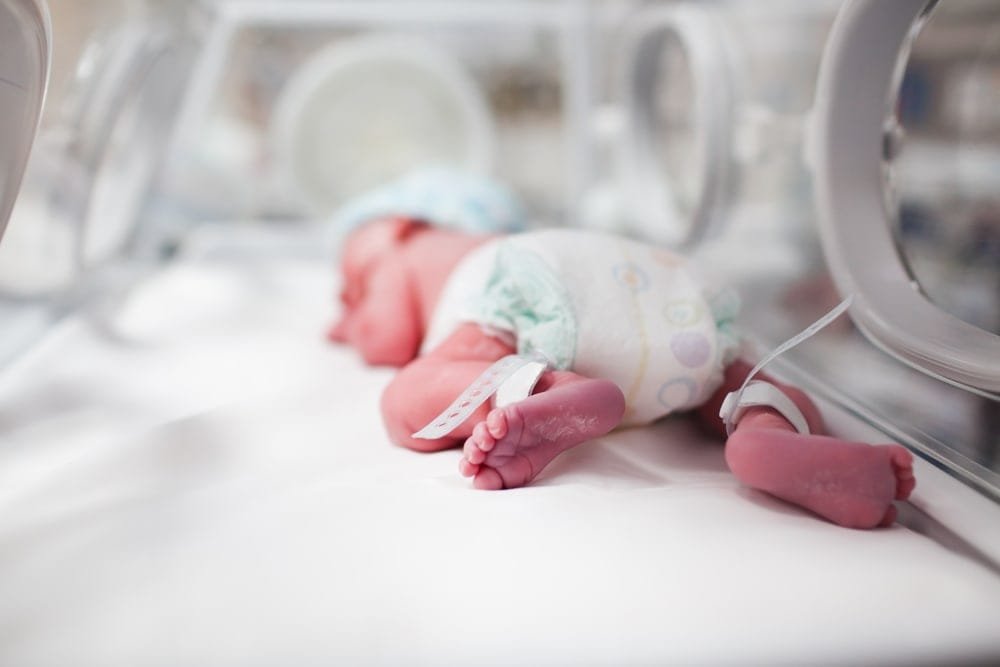Global Preterm Birth Cases: Indonesia Ranks 5th

Based on the latest available data, Indonesia ranks 5th in the world in terms of number of premature births (779,000/year). Moreover, 44% of the causes of neonatal deaths in the country is preterm birth and preterm birth complications, making this the leading cause of death among newborns.
At a global scale, preterm birth and its complications are the most common cause of death in children under the age of five. An estimated 15 million babies are born prematurely each year, with significant disparities in survival rates:
- In low-income nations, 50% of babies born at or below 32 weeks (2 months early) die due to a lack of viable, cost-effective treatment such as warmth, nursing support, and basic care for infections and breathing difficulties
- In high-income nations, nearly all of these infants survive
- In middle-income nations, inefficient use of technology is increasing the burden of disability among preterm newborns who survive the neonatal period

Babies delivered alive before 37 weeks of pregnancy are considered preterm. Based on gestational age, preterm birth is divided into the following subcategories:
- extremely preterm (less than 28 weeks)
- very preterm (28 to 32 weeks)
- moderate to late preterm (32 to 37 weeks)
Preterm births have a variety of causes. Majority of these are spontaneous, but some are caused by medical conditions issues that need caesarean delivery or early labor induction. Some of which are the following:
- Anemia
- Carrying twins or multiple babies
- Cervical weakness
- History of premature birth and miscarriage
- Low Pregnancy Associated Plasma Protein-A (PAPP-A) levels – PAPP-A is a hormone produced by the placenta essential for normal fetal development
- Stress
- Uterine abnormalities
The World Health Organization (WHO) and the United Nations International Children’s Emergency Fund (UNICEF) emphasize the importance ensuring that preterm babies receive appropriate newborn care. This includes ensuring that babies who have breathing problems receive prompt attention, and that all newborns are breastfed and kept warm, dry, and clean.
UNICEF also recommended three low-cost measures to improve premature baby survival:
- Steroids administration to moms who are at risk of premature birth. This can help hasten the development of unborn baby’s lungs, allowing it to breathe once delivered
- Kangaroo mother care, which involves keeping the baby near to the mother for warmth and to aid breastfeeding
- Antibiotics to keep the newborn safe from infection
According to WHO, a healthy pregnancy is the first step in preventing deaths and consequences from premature birth. Their antenatal care guidelines include essential treatments to help avoid preterm delivery. This includes the following:
- Early ultrasound to help calculate gestational age and detect multiple pregnancies
- Healthy eating and optimal nutrition
- Stopping tobacco, alcohol, and substance use
- Minimum of 8 visits to health professionals throughout pregnancy, beginning before 12 weeks, to identify and manage risk factors such as infections
In celebration of World Prematurity Day this November 17, WHO is also releasing new recommendations on the care of preterm infants based on new findings. These new findings show that basic measures like kangaroo mother care right after birth, early breastfeeding initiation, and using continuous positive airway pressure (CPAP) and medications like caffeine for respiratory issues can significantly lower mortality in preterm and low birthweight infants.
References:
Indonesia. (2022, April 28). Healthy Newborn Network. https://www.healthynewbornnetwork.org/country/indonesia/
Indonesia : Profile of preterm and low birth weight prevention and care – Indonesia. (2015, November 17). ReliefWeb. https://reliefweb.int/report/indonesia/indonesia-profile-preterm-and-low-birth-weight-prevention-and-care
Launch of the WHO recommendations for care of the preterm or low birth weight infant. (2022, November 17). https://www.who.int/news-room/events/detail/2022/11/17/default-calendar/launch-of-the-who-recommendations-for-care-of-the-preterm-or-low-birth-weight-infant
Premature Birth: Why Does It Happen? (2022, January 7). Makati Medical Center. https://www.makatimed.net.ph/blogs/premature-birth-why-does-it-happen/
Preterm birth. (2022, November 14). https://www.who.int/news-room/fact-sheets/detail/preterm-birth
